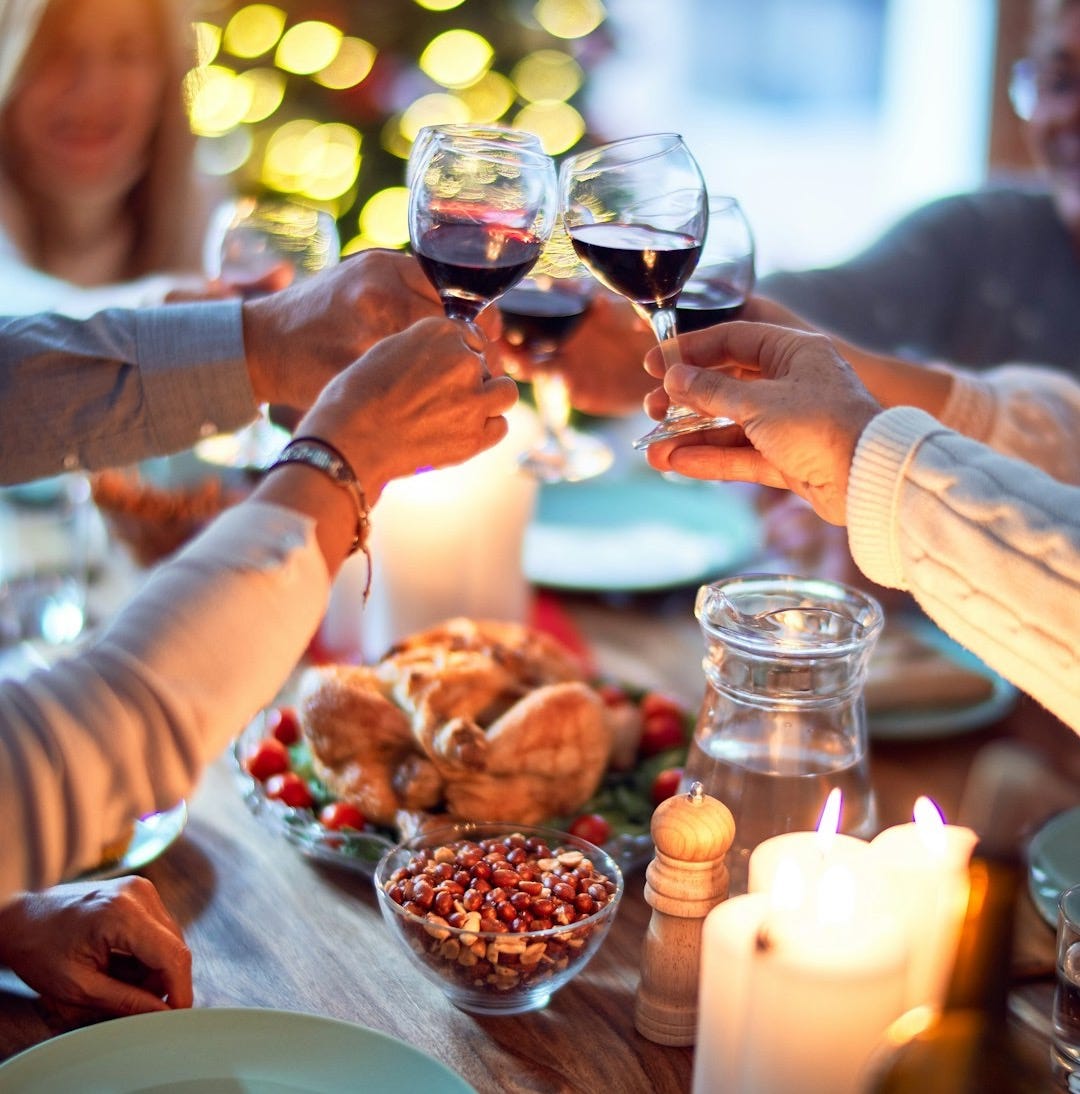How to Avoid Post-Thanksgiving Diet Abandonment:
5 Strategies to Stay on Track After the Holiday Feasts
Thanksgiving is a time for family, gratitude, and, of course, delicious food. But for many, the holiday also becomes the start of a downward spiral in their healthy eating habits. After indulging in heavy meals, rich desserts, and endless leftovers, it’s common for people to feel like they’ve “blown it.” This feeling can lead to abandoning healthy habits altogether, making it difficult to bounce back.
So, why do so many of us let one day of indulgence turn into weeks (or months) of poor eating?

Why People Abandon Healthy Eating After Thanksgiving
All-or-Nothing Mindset
One of the biggest culprits is the all-or-nothing mindset. After indulging, people often feel guilty and think they’ve ruined their progress. This mindset can lead to more unhealthy choices, with the thought that they’ll "start fresh" in January.Overwhelm from Leftovers
Thanksgiving leftovers are tempting and abundant. Many people continue to eat heavy, calorie-dense foods for days after the holiday, extending the feast and making it harder to revert to healthier meals.Holiday Momentum
Thanksgiving often feels like the kickoff to a season of indulgence, with holidays like Christmas and New Year’s around the corner. Once someone “falls off the wagon,” it can be hard to resist the ongoing stream of holiday treats and gatherings.Stress and Fatigue
The holidays can be stressful and exhausting, leading people to seek comfort in food. Emotional eating often spikes during this time, causing people to turn to unhealthy options to cope with stress, fatigue, or the pressures of the season.Lack of a Plan
Without a clear plan for how to transition back to healthy eating after the holiday, many people simply continue the indulgence. Having no strategy for how to return to a balanced diet can lead to days or even weeks of unhealthy habits.
5 Ways to Stay on Track After Thanksgiving
Forgive Yourself and Move On
A single day (or weekend) of indulgence won’t undo all your progress. The key is not to dwell on it or let guilt consume you. Shift your mindset from “I blew it” to “I enjoyed it, and now I’m back on track.” Remember, balance is essential—Thanksgiving is a time for celebration, not self-punishment.Plan Your Meals in Advance
After the holiday, set yourself up for success by planning healthy meals for the week. Use meal prepping as a tool to get back into a routine. Having healthy options ready to go reduces the temptation to continue snacking on leftovers.Get Rid of Tempting Leftovers
If you have an abundance of calorie-dense Thanksgiving leftovers, consider freezing them for another time, sharing with friends and family, or simply tossing what you won’t eat. Clearing your kitchen of temptations helps you regain control over your food choices.Ease Back Into Your Routine
You don’t have to make drastic changes overnight. Start by reintroducing balanced meals, including plenty of vegetables, lean protein, and whole grains. Get back to your usual workout routine or take it one step at a time if you’re feeling sluggish. Progress is about consistency, not perfection.Practice Mindful Eating
Use Thanksgiving as a learning experience to tune into your body’s hunger and fullness cues. Practice mindful eating by paying attention to portion sizes, savoring each bite, and stopping when you’re satisfied. This can help prevent overindulgence at future holiday gatherings.
It’s easy to feel like you’ve lost control after Thanksgiving, but one day (or even a few) won’t derail your progress if you don’t let it. The holidays are meant to be enjoyed, and you can absolutely indulge while still maintaining your healthy habits. By shifting your mindset, having a plan, and practicing mindful eating, you can celebrate without compromising your goals.
Remember, it’s not about perfection—it’s about balance. Indulge, enjoy, and then get right back on track!
References:
Mantzios, M., & Wilson, J. C. (2015). "Mindfulness, eating behaviors, and obesity: A review and reflection on current findings." Current Obesity Reports, 4(1), 141-146.
Wansink, B., & Sobal, J. (2007). "Mindless eating: The 200 daily food decisions we overlook." Environment and Behavior, 39(1), 106-123.
Foster, G. D., Wadden, T. A., Swain, R. M., et al. (1998). "The effects of food intake and body weight on emotional eating during the holiday season." International Journal of Obesity, 22(12), 1087-1093.



